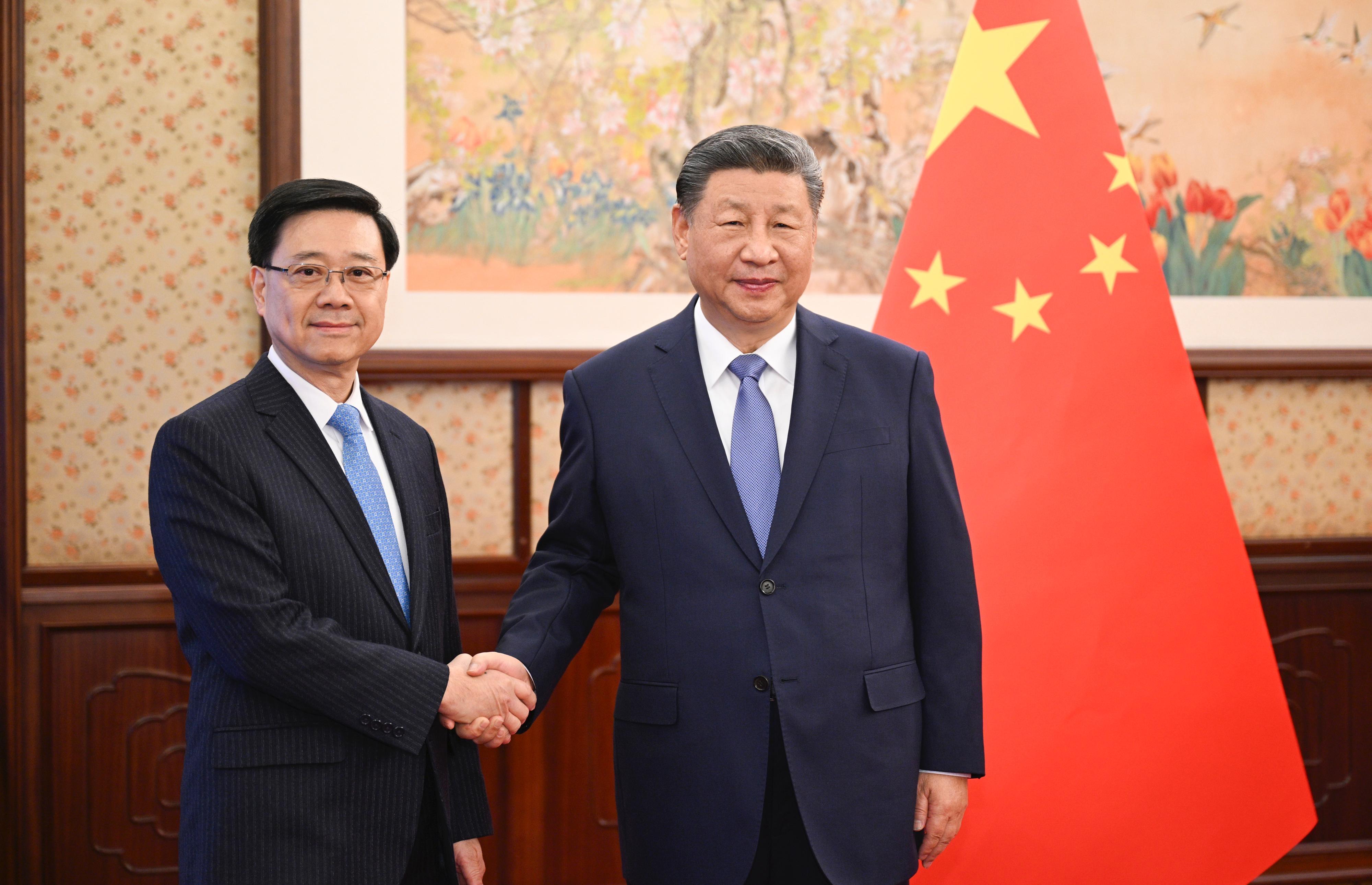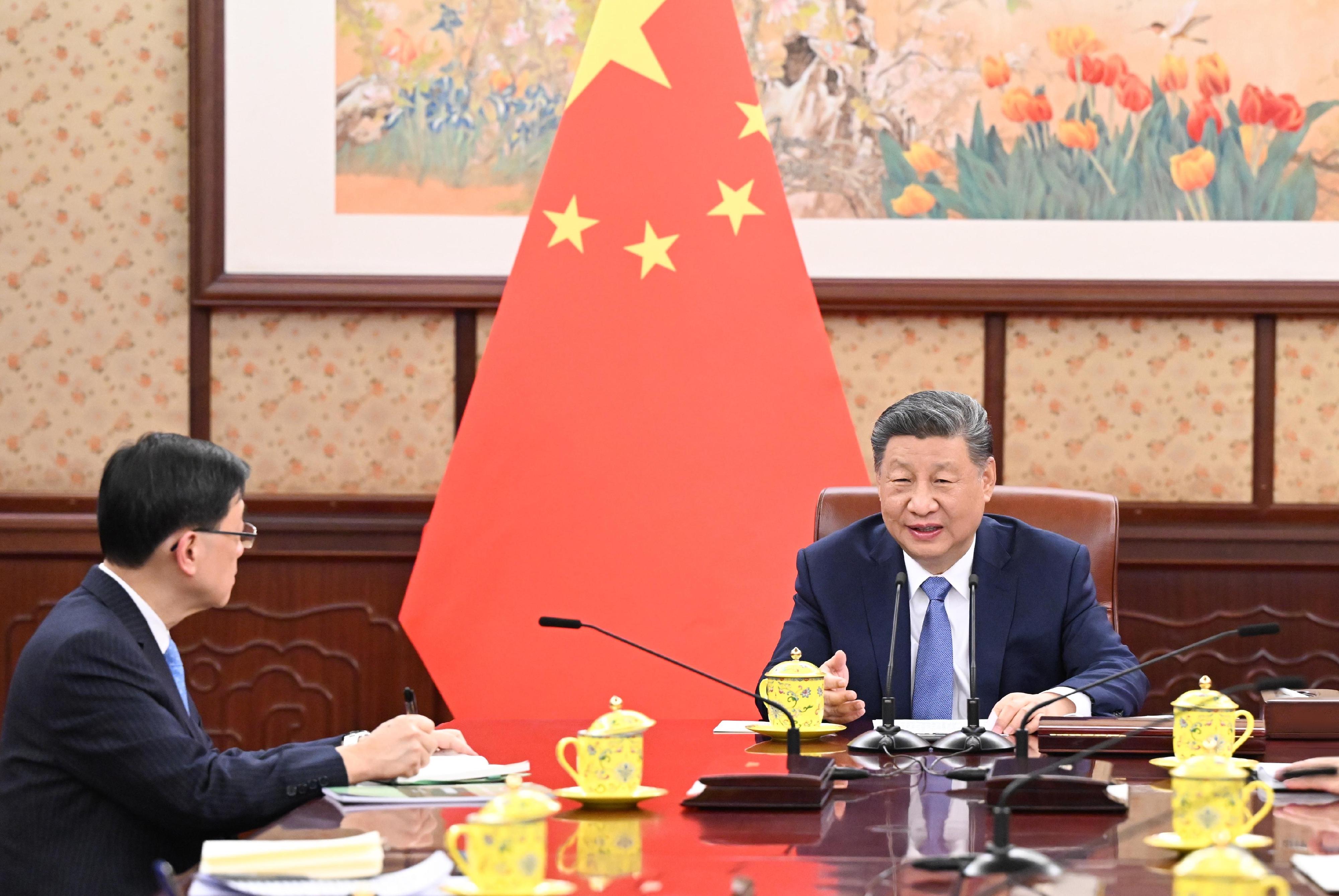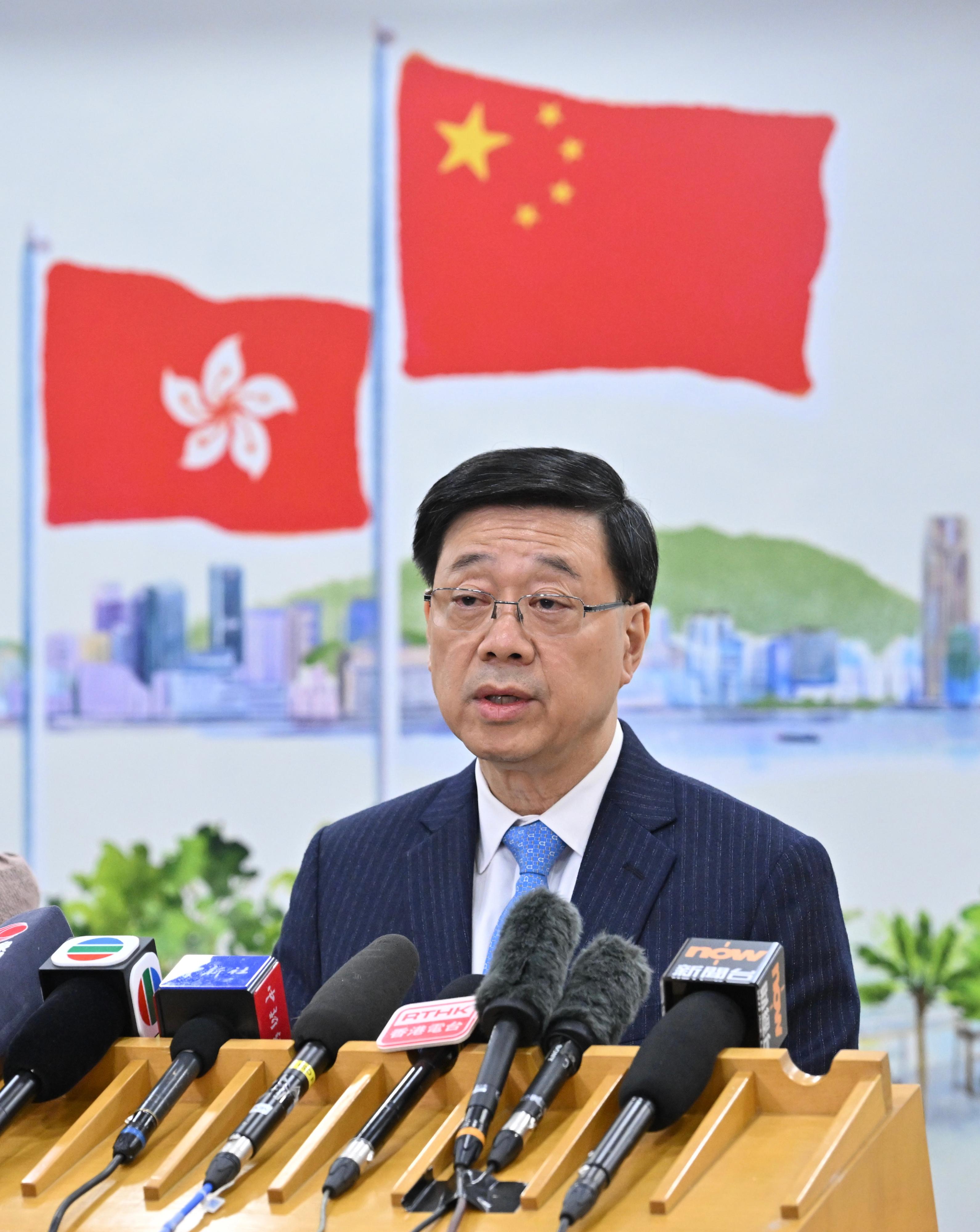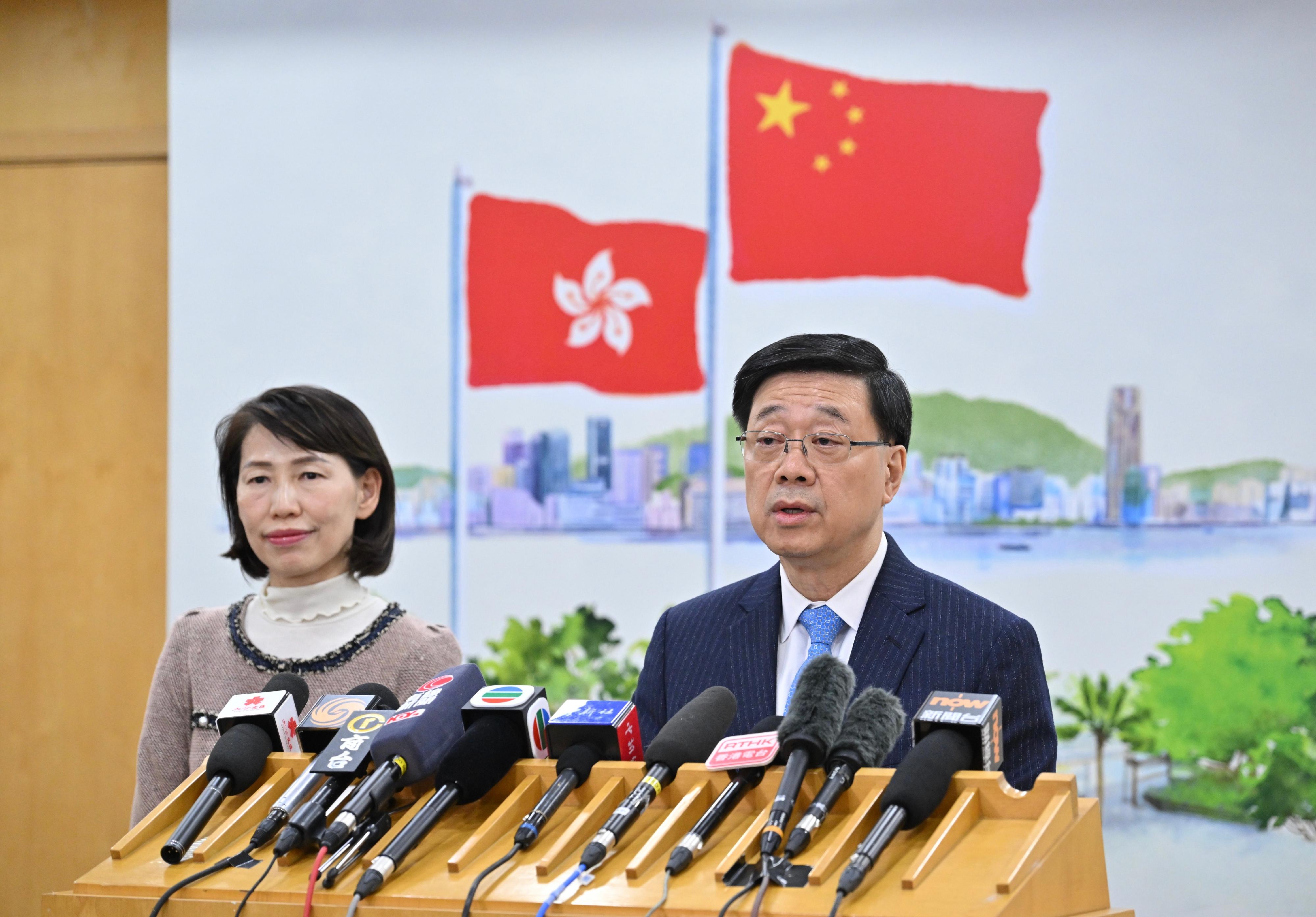The Development Bureau (DEVB) issued a Legislative Council (LegCo) paper today (December 13) proposing to amend the Buildings Ordinance (BO) along three aspects, namely speeding up building inspection and repair, rationalising the policy on handling unauthorised building works (UBWs), and enhancing building safety. The target is to introduce the amendment bill in the first half of 2026.
A DEVB spokesman said, “Our review and recommendations are based on four guiding principles: first, it is the owners’ primary responsibility to maintain and repair their properties. Second, we will adopt a carrot and stick approach. On one hand, we support owners in complying with statutory orders and notices. On the other hand, we impose legal responsibilities and a penalty system to compel owners’ compliance with the orders and notices. Third, to strike a balance between lenient and stringent enforcement, and to adjust enforcement degree having regard to the type and nature of contravention. Fourth, the policy principles and objectives should be clear, while enforcement should be pragmatic.”
Speed up building inspection and repair
“Under the multi-pronged strategy, for owners who are willing to carry out proper building maintenance, the Government will continue to provide financial and technical assistance through the Operation Building Bright 2.0 (‘OBB 2.0’) and other programmes. For owners of ‘three-nil’ buildings and other owners who are unable to co-ordinate among themselves, the Government will carry out default works as necessary. However, it is important to note that public resources are not unlimited, and over-intervention will bring about moral hazard. Therefore, the Government’s intervention must be targeted and with public interest in mind. We will take stringent enforcement action against owners who neglect their building maintenance responsibilities,” said the spokesman.
Since May this year, the DEVB and the Urban Renewal Authority (URA) have introduced improvement measures to enhance support for owners under OBB 2.0, including pre-qualifying inspectors and contractors by the URA for tendering; issuing tender documents by the URA on behalf of owners where necessary; and standardising tender assessment procedures to facilitate owners. In addition, the DEVB established a multi-party collaboration platform in the third quarter of last year, comprising the Buildings Department (BD), the URA, the Home Affairs Department (HAD), etc., to organise briefings in old districts to provide direct answers on compliance with notices under Mandatory Building Inspection Scheme (MBIS) and Mandatory Window Inspection Scheme (MWIS). In addition, the BD has regularised an external wall inspection programme since this year to make use of drones to inspect the external walls of high-risk buildings and carry out emergency works as necessary. Target buildings include “three-nil” buildings.
In view of the unsatisfactory compliance rate of the MBIS and MWIS (e.g. only 40 per cent of the notices involving common parts of a building were complied with), to compel compliance with the various orders and notices by owners, we propose –
(a) Introducing fixed penalty: introducing a fixed penalty of $6,000 for non-compliance with MBIS notices and increasing the fixed penalty for non-compliance with MWIS notices from $1,500 to $3,000.
(b) Increasing penalty: the maximum penalty for non-compliance with MBIS and MWIS notices and orders will be increased. The maximum penalty in respect of MBIS notices involving external walls or projections thereof is proposed to be increased by four times from $50,000 to $200,000, with the imprisonment term be kept at one year; for non-compliance with MWIS notices, the maximum penalty will be increased from $25,000 to $100,000, with the imprisonment term be kept at three months. Besides, the penalty for unco-operative owners obstructing building inspection or maintenance will be increased from $10,000 to $25,000.
(c) Introducing a new offence: a maximum fine of $300,000 and imprisonment for one year will be imposed for non-compliance with a MBIS or MWIS notice or a statutory order if there was damage to the external walls or its projections or the windows of a building, leading to death, injury or property damage, so as to enhance deterrence.
Apart from legislation, we will continue to consider suggestions for providing better support to Owners’ Corporations and owners, including drawing on the experience of the URA to consider how to assist owners and property management companies in drawing up maintenance manuals and making financial planning for future maintenance works.
Rationalising the policy for handling unauthorised building works (UBWs)
Under the existing BO, except for certain exempted works, building works require prior submission of plans to and approval by the BD, or should be carried out under the simplified procedures of the Minor Works Control System (MWCS). Any contravention of the above regulatory requirements will be regarded as UBWs. In other words, facilities that range from small-scale as drying racks, supporting frames for air-conditioners or canopies, which are related to the daily life of the public, to large-scale structures such as enclosed rooftops or unauthorised basements are all regarded as illegal works or UBWs which can be ordered for removal if the relevant works are not carried out in accordance with the BO.
The spokesman said, “There are views in the community that some minor UBWs are related to the needs of people’s daily lives and are of relatively low safety risk, and that enforcement against such may cause nuisance to the public. On the other hand, the existing penalties have not been effective in deterring building works that are in serious contravention of the BO, and that some individual owners have derived considerable economic or personal benefits from the erection of large-scale UBWs but have not been subject to proportional legal responsibilities. In order to strike a balance between the daily needs of the public and the risks of minor UBWs, as well as to optimise the use of limited enforcement resources, we will adopt a pragmatic and facilitating approach in dealing with minor UBWs, while focusing on the effectiveness of enforcement against serious UBWs. Specifically, we will handle UBWs under the existing framework in two categories.”
Minor UBWs that are related to people’s daily lives
Regarding pre-existing minor UBWs that fall within the scope of minor works (i.e. not erected in accordance with the requirements of the MWCS), taking into account that the scale of the structures concerned may be relatively small and closely related to people’s daily lives, we will deal with such works sympathetically in a lawful manner –
(a) Adding more types of “designated exempted works” or relaxing the requirements for existing works items, so that more works can be carried out without needing BD’s approval. Such types of pre-existing works will no longer be regarded as UBWs. Examples include retractable awnings and drying racks below a specified height, etc.
(b) Consolidating the three existing urban validation schemes into one integrated scheme and extending the scope of validation to allow owners to retain minor UBWs erected before the commencement of the amendment ordinance and meeting the specified dimensions, such as canopies, supporting frames for air-conditioners, enclosed balconies, signboards, etc., after a one-off or regular validation by registered building professionals or registered contractors (all but signboards are subject to one-off validation only). There will be a grace period of three years upon the implementation of the integrated scheme during which no enforcement action will be taken, so as to urge for early participation by owners. After three years, the BD will progressively take enforcement action against unvalidated minor UBWs.
As for new building works, the new “designated exempted works” mentioned in paragraph (a) above will not be subject to BD’s regulation when the amendment ordinance comes into effect. We will also increase the types of minor works or relax the requirements of existing minor works items so that works related to the people’s daily lives that pose low risks (including erection or alteration of supporting frames for air-conditioners and poles protruding from external walls) can be carried out under the simplified procedures.
In terms of enforcement, it is recommended that –
(a) Introducing fixed penalty: introducing a fixed penalty of $10,000 for non-compliance with removal orders for new minor works carried out without complying with the regulations or existing minor UBWs that have not been validated.
(b) New penalty for re-conviction: failure to comply with a removal order after the imposition of a fixed penalty is liable to prosecution. The maximum penalty on first conviction will be maintained at $200,000 and imprisonment for one year. A new provision will be added to increase the maximum penalty on subsequent conviction to a fine of $400,000 and imprisonment for one year to enhance the deterrent effect.
Serious UBWs
There is a general consensus in the community that UBWs posing a threat to public safety or constituting a serious contravention of the law (e.g. erecting unauthorised basements, enclosing rooftop structures, erecting podiums/backyard structures, etc.) should not be tolerated from the perspective of safety and policy fairness and the UBWs must be removed. This message should be clearly conveyed through legislation. To this end, we propose –
(a) Increasing penalties: the maximum fine for non-compliance with a removal order will be increased from $200,000 and imprisonment for one year to $300,000 and imprisonment for two years, and to $600,000 and imprisonment for two years in the event of a subsequent conviction.
(b) Lowering the prosecution threshold: under the existing BO, the Government may prosecute an owner, registered building professional or registered contractor, etc., who “knowingly” erects a structure without BD’s approval. To lower the prosecution threshold, we propose to remove the word “knowingly”. In other words, for unauthorised works commenced without BD’s approval, the BD may initiate prosecution if it has reasonable doubt that the situation is related to an owner and/or a professional. We also propose to increase the penalty from a maximum fine of $400,000 to $2,000,000 and maintain the imprisonment term at two years. We will invite the court to take into account factors such as the size of the UBWs concerned, the location of the property or the rateable value of the property when considering the sentence, so that the difference in economic benefits between, say, a luxury detached house and an old building with rooftop UBWs can be reflected in the sentence.
(c) Introduction of a new offence and indictable offence arrangement: in the past, some owners have avoided liability by arguing that they had only taken over the UBWs erected by the previous owner. To plug this loophole, a new offence is proposed to be created so that an owner commits an offence if there is a serious UBW in a property acquired after a certain specified period after the commencement of the amendment ordinance, irrespective of whether the UBW was erected by the owner. The maximum penalty is proposed to be a fine of $300,000 and imprisonment for two years on summary conviction at the Magistrates’ Court. On conviction on indictment in the District Court or a higher court, it is proposed that the maximum fine should be higher than that on summary conviction or the current maximum fine under the BO ($1,000,000).
(d) Aiding an offence is tantamount to committing an offence: we propose to amend an existing provision so that a person who knowingly assists an owner in committing the new offence in (c) above (e.g. a solicitor or estate agent involved in a property transaction who assists an owner in acquiring a property with a serious UBW after a certain specified period after the commencement of the amendment ordinance) will be deemed to be guilty of and be held liable to the same offence and subject the same penalties for that offence.
Separately, the Government launched a one-off administrative reporting scheme for UBWs in New Territories Exempted Houses in 2012, and the reporting period ended in December 2012. In response to the views of villagers and Legislative Council members, we propose to re-launch the reporting scheme to allow owners who at that time did not report their UBWs to do so, but we will continue to adopt all the old arrangements under the scheme, including applying the scheme only to UBWs erected before June 28, 2011 and requiring regular safety check of the reported UBWs.
Enhancing building safety
In order to enhance building safety, we propose to introduce an indictable offence for serious injury or death caused by works carried out by registered building professionals or registered contractors directly involved in the works by making reference to the Occupational Safety and Health Ordinance. We propose to raise the maximum penalty from $1,000,000 to $10,000,000 to be on par with the Occupational Safety and Health Ordinance, while maintaining the imprisonment term at three years. We also propose to empower the BD to require interviews, search and seizure of documents under warrants, etc., and introduce new offences for refusing to attend interviews or provide site supervision documents, etc., so as to provide the BD with sufficient power to conduct investigation and collect evidence.
In addition, the Government proposes to enhance the registration and disciplinary systems for registered contractors, including extending the renewal period from three years to a maximum of five years in response to the industry’s wish for a longer operation period to encourage long-term investment and healthy development of the industry. On the other hand, we propose to empower the Building Authority to approve registration renewal for a period of less than three years and to impose renewal conditions having regard to individual case merits. Apart from speeding up disciplinary board hearings through various measures, we also propose to increase the maximum penalty from $250,000 to $400,000 and to enable the disciplinary board to impose more than one sanction (in addition to fines, consideration may be given to ordering a reprimand and/or removal of the contractor from the register at the same time) in order to enhance the deterrent effect.
“The implementation of the above proposed amendments will raise awareness of safeguarding construction site safety, improve the regulatory regime for building works and enhance the deterrent effect against works carried out in a dangerous manner,” the spokesman said.
The DEVB will launch a two-month consultation on the above proposed legislative amendments starting from December 30, and the consultation document will be uploaded onto the website of the Development Bureau on the same day. Any views are welcome to be submitted through the online form or by email on or before February 28, 2025 at bo_consultation@devb.gov.hk. Taking into account public views, the DEVB will commence drafting of the amendment bill for introduction into the Legislative Council in the first half of 2026. read more







